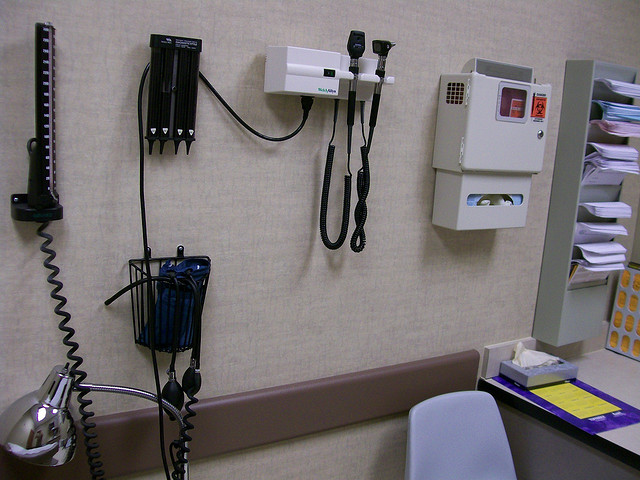If the unfamiliar triggers anxiety, then a trip to the hearing specialist is particularly nerve-racking. While the majority of us have experience with the family physician and the community dentist, the visit to the hearing specialist might be a first.
It sure would be nice to have someone explain the process beforehand, wouldn’t it? Well, keep reading, because as you’ll discover, the process of getting your hearing tested is almost always simple, comfortable, and pain-free — with parts that can actually be fun.
So here’s how it will go:
Just after you arrive at the office, you will check in with an employee at the front desk who will give you a few forms to fill out. Not long after handing in the forms, a hearing specialist will come with you into a room to get started on the hearing assessment, which is made up of four parts:
Part 1: Case History

The hearing specialist will begin the process by getting to know you, your medical history, and your hearing loss symptoms. Getting ready for this step is critical, because this is where you get to explain to the hearing specialist the particulars of your hearing loss, what you expect from treatment, and your special hearing needs.
This portion is all about you: what do you want to attain with superior hearing? Do you wish to play a music instrument again? Do you wish to be more engaged in work meetings? Do you want to be more lively at social gatherings? The more you can describe to your hearing specialist the better.
Next comes the testing.
Part 2: Otoscopy
The initial diagnostic test to be carried out is called an otoscopy. An otoscope is used to visually examine the ear canal and eardrum to find if your hearing loss is related to infections, earwax accumulation, or obstructions. If the source of your hearing loss is something as minor as earwax buildup, you could most likely begin hearing better within minutes simply from professional earwax removal.
Part 3: Tympanometry
The following test is named tympanometry, used to test the eardrum and middle ear. A gadget is placed into the ear that will alter the air pressure, evaluating how your ear reacts to different pressures.
To understand this test, you have to first know that hearing loss falls into one of two broad classes:
- Sensorineural hearing loss — this is the most prevalent hearing loss. It is also defined as noise-induced hearing loss and it involves destruction of the nerve cells of hearing.
- Conductive hearing loss — this hearing loss results from clogging or obstructions that limit sound conduction before the sound arrives at the nerves of hearing.
Tympanometry is a test that can help to rule out conductive hearing loss, to make sure that there are no obstructions, infections, or middle-ear-bone conditions. Conversely, Audiometry, which is discussed next, will measure sensorineural hearing loss.
Part 4: Audiometry
The final group of tests will be conducted in a soundproof room. These tests are collectively known as audiometry and will calculate your hearing range and sensitivity. Audiometry is the best method to calculate sensorineural hearing loss.
With the use of an audiometer, the hearing specialist will be ready to pinpoint:
- Which frequencies you can hear well and which you have problems with.
- The minimum decibel levels, at various frequencies, at which you perceive sound.
- The precise measurements connected with your hearing loss (as documented on an audiogram).
- Your capacity to comprehend speech, with or without background noise.
The test itself, from your outlook, will be comfortable and fairly simple. You will be presented with sounds and speech through earphones and will be directed to identify when you can hear the sounds by pressing a device or lifting your hand.
Reviewing results and planning treatment
After the testing is complete, your hearing specialist will discuss your results with you. If your hearing loss will require medical or surgical treatment (due to infections or middle-ear-bone problems, for instance), your hearing specialist can make the appropriate referral.
If your hearing loss can profit from assistive listening devices or hearing aids, your hearing specialist will collaborate with you to decide on the ideal solution for you, your budget, your lifestyle, and your aesthetic concerns.
Pretty simple for a lifetime of better hearing, isn’t it?
